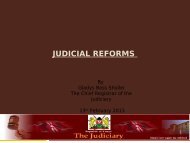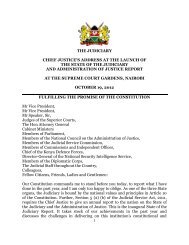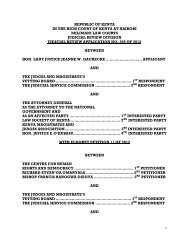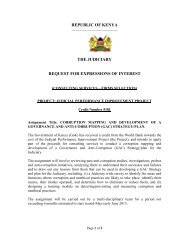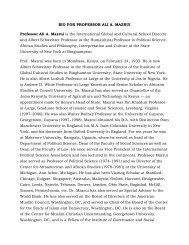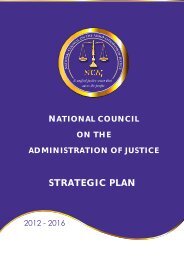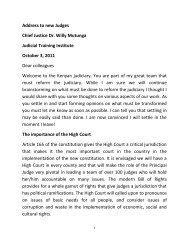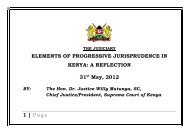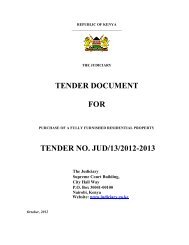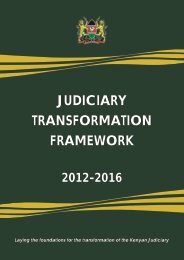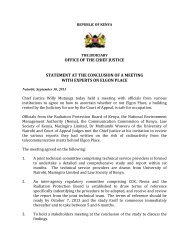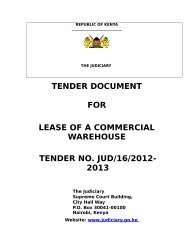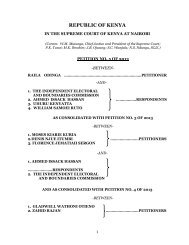REPUBLIC OF KENYA - The Judiciary
REPUBLIC OF KENYA - The Judiciary
REPUBLIC OF KENYA - The Judiciary
You also want an ePaper? Increase the reach of your titles
YUMPU automatically turns print PDFs into web optimized ePapers that Google loves.
the litigants (present or prospective), could fully grasp<br />
the reasons behind its refusal to exercise jurisdiction as<br />
purportedly provided under Section 14 of the Supreme<br />
Court Act. <strong>The</strong> promise of justice embedded in Section 14,<br />
was undoubtedly an issue close to the hearts of the<br />
Kenyan people; and this, thus, provided an opportunity<br />
for the Supreme Court to seek the parties’ participation<br />
by way of detailed submissions, as a basis for full justice<br />
on the issue. This would especially have been advisable,<br />
in view of the well-established presumption, of the<br />
constitutionality of a statute, and of its provisions”<br />
(emphases supplied).<br />
[158] This very principle was well articulated by the apex Court of<br />
Tanzania, the Court of Appeal, in an election petition where the<br />
constitutionality of Section 111(2) of the Elections Act was under<br />
consideration, in Ndyanabo v. Attorney-General (Civil Appeal No. 64<br />
of 2001 [2002] TZCA 2 (14 February 2002) @ www.saflii.org. <strong>The</strong> Court,<br />
in that case, gave directions on the interpretation of the Constitution,<br />
as follows:<br />
“Thirdly, until the contrary is proved, a legislation is<br />
presumed to be constitutional (emphasis mine). It is a<br />
89



